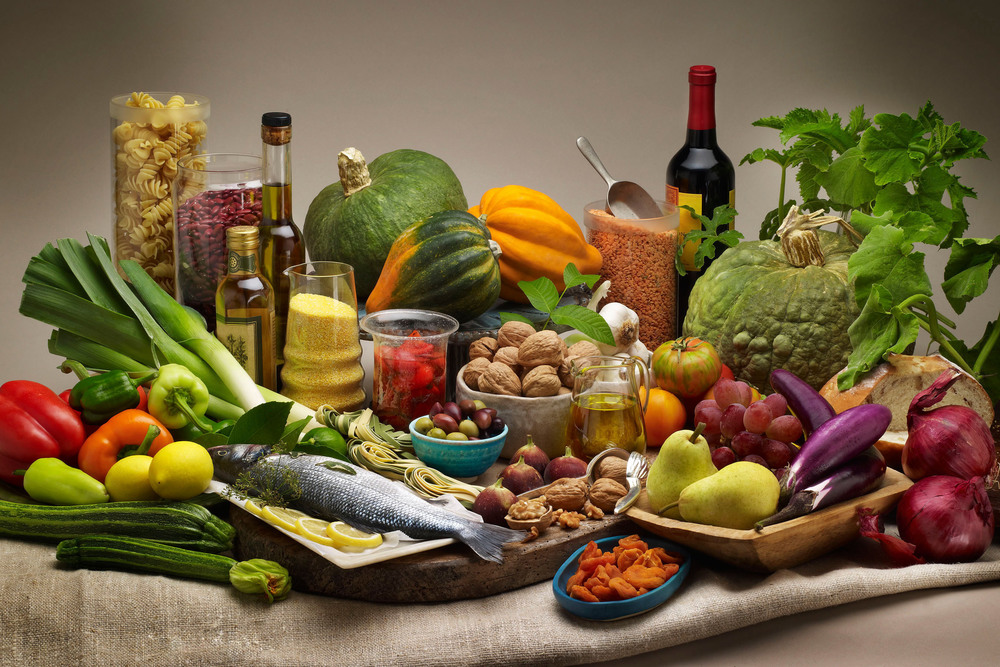Can the quality of your diet hasten or delay menopause?
Could the foods you eat help determine when you start menopause? They might, says a study published in the Journal of Epidemiology and Community Health. Researchers found that women who ate more fish and beans and other legumes started menopause at a later age, while women who ate a diet heavy on refined pasta and rice went through the change earlier. 
Why do the results matter?
How old a woman is when she goes through menopause may have implications for her health. Past research has linked certain health risks to menopause that occurs either very early (before age 40) or late (age 55 or older). Going through menopause at an earlier age has been associated with lower bone density and a higher risk for osteoporosis, cardiovascular disease, depression, and — in some instances — premature death.
While overall later menopause is probably healthier, it is associated with an elevated risk of developing breast, ovarian, and endometrial cancers. The average age for menopause is 51, and the women in this study were close to that number, with an average age at menopause of 50.5.
“The message from this study is pretty much consistent with the recommendations for chronic disease prevention and cardiovascular disease prevention,” says Dr. Sylvia Ley, an instructor in medicine at Harvard Medical School. That is, eating a nutritious, well-balanced diet provides health benefits — in addition to potentially holding off menopause for a few years.

Healthy foods including fatty fish and beans can delay menopause.
About the study
To come to their conclusions, the study authors used data from the UK Women’s Cohort Study, which included 35,000 women ages 35 to 69 from England, Scotland, and Wales. Women were asked to fill out questionnaires detailing how often they ate any of 217 listed foods, and researchers followed them for, on average, four years. During the follow-up period, roughly 900 of the women — all of whom were older than 40 but younger than 64 — went through natural menopause and were included in the final analysis.
Researchers were able to find links between the age that women went through menopause and some of the foods they reported eating regularly. Each daily serving of oily fish, beans, and other legumes that a woman ate was associated with an average 3.3-year delay in the start of menopause. And for every additional serving of refined pasta and rice a woman ate each day, menopause was on average 1.5 years earlier.
Dietary influences
It’s not clear why this was the case, but researchers speculated that the antioxidants in legumes and the omega-3 fatty acids in certain fish might have a protective effect on a woman’s eggs, essentially helping to preserve them for longer and delaying the start of menopause.
On the other hand, refined carbohydrate sources in the diet could hasten menopause, suggested the study authors, because these foods boost the risk of insulin resistance, which could interfere with hormone production.
Researchers also found that a higher intake of two nutrients, vitamin B6 and zinc, also appeared to delay menopause — by 0.6 and 0.3 years, respectively. In addition, vegetarians in the study reached menopause at an earlier age than meat eaters.
Study limitations
This study does have limitations. For one, it relied on women to accurately remember what they ate in the past and didn’t prove that the dietary differences actually caused the shifts in menopausal age.
In addition, it included only 900 women — the ones who began menopause — in its final analysis and used a relatively short, four-year follow-up period, says Dr. Ley. That said, the findings are still worth noting, she says. It adds to the ongoing discussion about the role of diet in menopause. It also seems to back up data from the Nurses’ Health Study II, which was published in The American Journal of Clinical Nutrition in 2017. That study also hinted that dietary factors — specifically lower levels of calcium and vitamin D in the diet — may be linked to an earlier menopause.
Regardless of whether research ultimately proves that diet influences age at menopause, there’s already ample evidence that adopting a healthy eating pattern — including plenty of oily fish and legumes — is a good strategy, whether you’re looking for better health or a later menopause.
____________________________
Credit: Harvard Women’s Health Watch

















